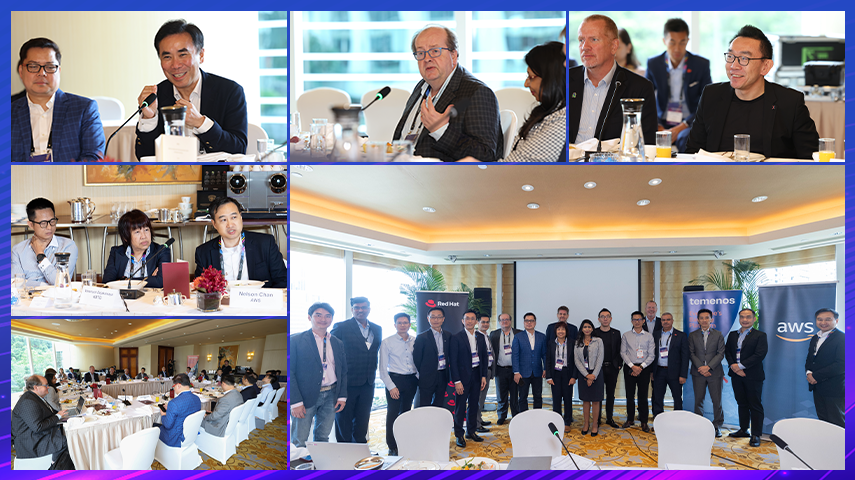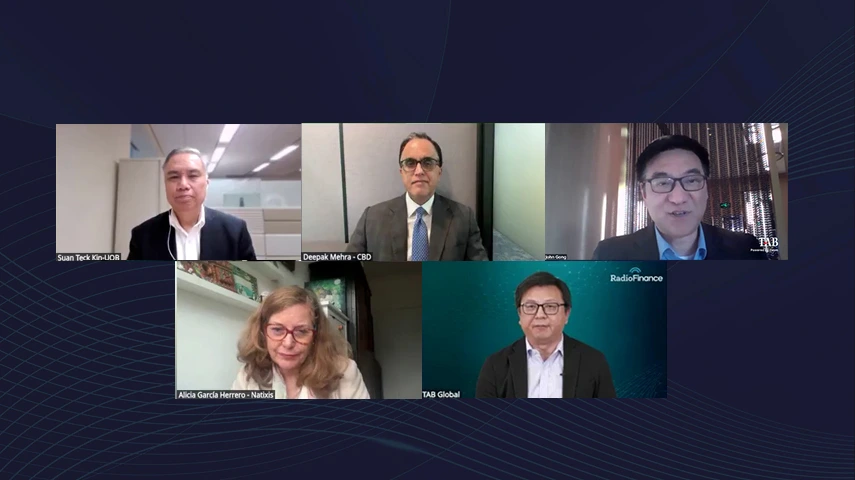
Interviewed By Foo Boon Ping
Accelerated growth in digital transactions and evolving customer needs require more resilient core, scalable architectures, and strategic AI adoption, according to participants at the Heads of Technology roundtable in conjunction with The Asian Banker Summit 2024 on 23 May at the Conrad in Hong Kong.
At the roundtable titled Banking Beyond Tomorrow–Charting the Path for Growth, Scale, and Innovation, technology and digital leaders from top financial institutions across the Asia Pacific discussed their priorities and challenges in digital transformation.
Participants included senior practitioners from Standard Chartered Bank, Kasikorn Bank, Techcombank, Deutsche Asset Management, HKEX, VP Bank, BoC (Hong Kong), Mox Bank, RCBC, UOB, China CITIC Bank International, OCBC, and Credit Access Grameen India, Temenos and Red Hat.
The investment in technology and digital transformation is increasing as banks strive to provide more personalised experiences, drive business growth and differentiate services. The discussion focused on four key areas in technology transformation trends.
Key technology priorities and challenges: In the last few years, banks have accelerated the introduction of new digital features such as mobile capabilities, digital payments and lending, electronic know-your-customer, and digital onboarding, that have significantly increased digital transaction volumes.
However, this rapid growth has also brought challenges. Leaders expressed concerns about system resiliency during peak volumes, growing technology costs and keeping pace with new technologies while addressing third-party risks, and regulatory compliance needs. The need for a robust, agile and scalable core foundation to avoid potential breakdowns was emphasised.
Some participants highlighted that having prioritised investments in retail digital capabilities, they are now focusing on strengthening digital and mobile capabilities for corporate clients and small and medium-sized enterprises. This includes integrating ecosystem partnerships with fintechs and third parties through application programming interfaces to enhance services tailored to the unique transactional, payments and business management needs of their customers.
Scalable architecture and core modernisation: The discussion revealed varying strategies among banks towards modernising their core architecture, depending on their existing technology capabilities. Some banks prefer to maintain and manage their existing core banking platforms due to good performance. Several others shared that they are investing in new digital or hybrid core infrastructure systems and moving workloads to scalable cloud-native and microservices architectures.
AI and GenAI focus and challenges: Intelligent and timely insights are critical for business growth. The potential opportunities and challenges in adopting artificial intelligence (AI) and generative AI (GenAI) capabilities were among the key discussion points.
Participants agreed that GenAI developments are reshaping banking processes and transforming roles of people within banks. They said that they are exploring GenAI for automating processes, reducing headcounts, and improving operational efficiency. Applications include coding, document summarisation, automated processing, and strengthening risk management processes, among others.
Despite the enthusiasm, most participants are adopting a cautious approach in GenAI adoption, focusing on test-and-learn and implementing primarily internal use cases due to the technology’s nascent stage, unproven results, regulatory compliance concerns, and potential risks in customer-facing applications.
Some prefer smaller-scale investments until proven results justify larger budgets. The preference for more explainable and transparent AI capabilities to meet regulatory requirements was also highlighted.
Participants emphasised the necessity of a robust data foundation for scaling AI and stronger insights. Addressing regulatory, privacy, and security challenges and building scalable and agile data architecture were also considered critical by participants. Some participants shared that they are undertaking multi-year data programs focused on integrating structured data, increasing real-time data processing, and generating actionable insights.
As banks navigate complex digital transformations, operational risk and resiliency concerns emerged as paramount in the discussion. Strengthening their core and back-end architecture foundation is crucial for future success.
A stronger understanding of AI applications in solving business problems and the organisation’s ability to scale its implementation for more intelligent banking are likely to drive future value.

As the global banking industry braces for a challenging 2025, it faces economic headwinds, geopolitical tensions, trade realignments, and the push for sustainability and technological innovation

The AWS Financial Services Symposium Singapore 2024 showcased how AI, data, and cloud technologies are revolutionising financial services. Industry leaders from AWS and HSBC shared insights into advancing innovation, regulatory responsibility…

On the eve of the Singapore Fintech Festival 2024, TAB Global and Temenos hosted an exclusive CXO networking reception at Swissotel, The Stamford. The gathering provided a relaxed setting for executives across the industry to connect and…

The Finance Philippines 2024: Leading Practitioner Roundtable on Technology Modernisation for Digital Banking and Lending Innovation explored the critical role of foundational technologies, financial inclusion, identity verification systems,…

On June 21, The Asian Banker held the 2024 Future of Finance China Summit in Beijing, themed "Challenges and Vision". The year 2024 is expected to be a challenging one globally due to intensified geopolitical tensions and increased trade…

By continuing to browse this website, you agree to our privacy policy.